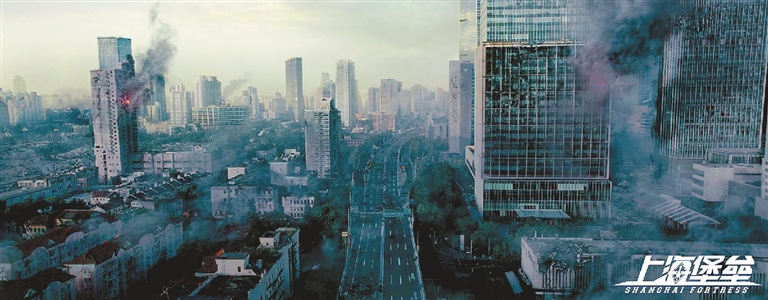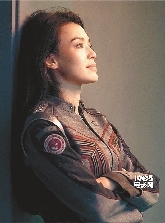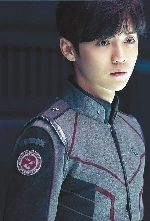



“SHANGHAI Fortress,” China’s latest big-budget science fiction tentpole, crashed and burned shortly after liftoff over the weekend. The expensive film’s flop is a blow to the Chinese industry’s efforts to ramp up production values so that it can begin competing with Hollywood’s effects-heavy blockbusters on more equal footing. After the colossal success of sci-fi tentpole “The Wandering Earth” earlier this year — it earned US$700 million and rave local reviews — hopes were high that “Shanghai Fortress” might be the next big breakthrough. Costing an estimated 400 million yuan, (US$57 million), “Shanghai Fortress” was developed and produced over a period of five years. The movie is an adaptation of a 2009 novel of the same name, about a group of young people hiding out in Shanghai, which has become humanity’s last redoubt against a devastating alien invasion. It stars Shu Qi and pop star-turned-actor Lu Han, previously Disney’s marketing ambassador for the “Star Wars” franchise in China. “Shanghai Fortress” briefly opened at the top of China’s box office during the first half of Friday, but its ticket sales quickly plummeted as negative reviews and harsh word of mouth began to course through local social media. It earned US$11 million Friday, but crashed to US$3 million Saturday and US$1.7 million Sunday, finishing in fourth place for the weekend with US$15.4 million, including previews. Meanwhile, local animation hit “Ne Zha” added US$66.5 million during the same frame, lifting its total to nearly US$500 million after three weekends, according to Artisan Gateway. “Shanghai Fortress” is rated just 3.3/10 on Douban, the influential Chinese film reviews website, and more than half of the 60,000-plus filmgoers who have scored the film gave it just one star out of five. On ticketing app Maoyan, where the scoring system tends to be much more generously weighted, “Shanghai Fortress” has a rating of 5.8/10, by far the lowest of any title now on release. Online complaints about the film have come from all angles, including incoherence in its story, undercooked special effects and a poor performance from Lu Han, whose popularity stems more from his pop idol persona than his chops as an actor (local sci-fi buffs were critical back when Lu was cast in the film more than two years ago). Fans of the original “Shanghai Fortress” novel were particularly vocal about their disappointment in the film. The movie’s director, Teng Huatao, responded to the flameout with a heartfelt apology posted to social media. “In the past, there were members of the audience who didn’t like my movies. But their criticism was always aimed at the movies [themselves]. But today I saw that some Internet users are saying, ‘The Wandering Earth’ opened the door to Chinese science fiction and ‘Shanghai Fortress’ closed it,” Teng wrote. “I am very saddened,” he went on. “This showed not only their dissatisfaction with the movie, but that their hopes for Chinese sci-fi were dashed. As the director, I have ultimate responsibility for this. I am very sorry.” “Shanghai Fortress” was Teng’s first attempt at the sci-fi genre. He is best known for his romantic films, like “Up in the Wind” (2013) and “Love Is Not Blind” (2011), both successes. For some industry insiders and analysts, the flop of “Shanghai Fortress” offers a lesson for those planning new sci-fi films to avoid similar pitfalls. “’The Wandering Earth’ has largely raised the bar for Chinese sci-fi movies, as well as public perception of such movies, but ‘The Wandering Earth’ and ‘Shanghai Fortress’ are both just single cases. It’s unfair to link one movie’s performance to an entire industry,” says Rao Shuguang, president of the China Film Critics Association. He says sci-fi films are different from middle-budgeted genres, such as comedy and romance, in that they need persistence and the development of better cinema technology in China. Guo Jing, a veteran producer who is now making an online sci-fi series adapted from a short story by another Chinese Hugo Award winner, Hao Jingfang, says “Shanghai Fortress” won’t exert much influence over sci-fi, as a film usually starts preparations two or three years before the shooting. “Chinese sci-fi cinema needs more qualified writers and a mature industry chain, but it will get better in the future,” Guo adds. (SD-Agencies) | 
